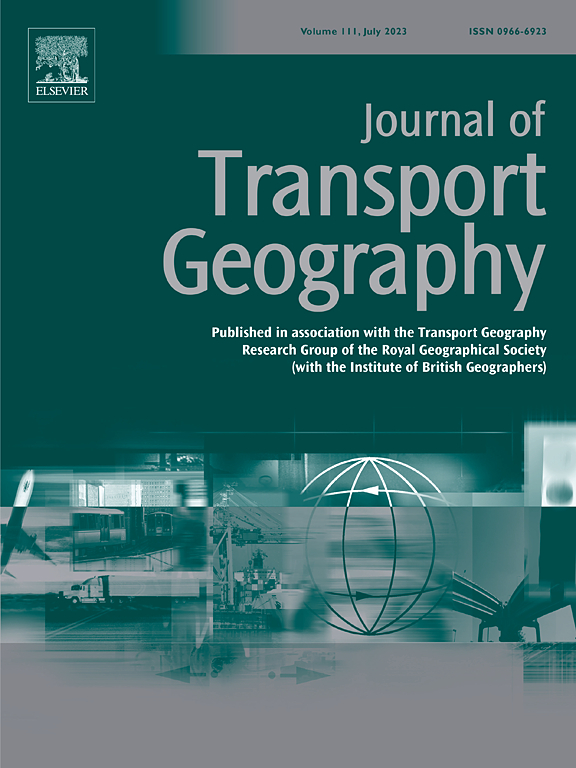设计中的包容,实践中的排斥:台北生活实验室未来移动系统创新中的包容政治
IF 6.3
2区 工程技术
Q1 ECONOMICS
引用次数: 0
摘要
城市生活实验室已成为东亚城市创新交通技术和治理的重要工具。台北将其生活实验室方法与智慧城市倡议相结合,提出了“城市作为生活实验室”的愿景。重点是与市政以外的人和组织建立合作关系,在创新过程中包括不同的价值观和经验。西方环境之外的城市生活实验室已经流行起来,但只受到有限的关注。本论文透过探索台北交通创新的生活实验室,为文献提供贡献,并提出检视行动中的包容政治的重要性。实证研究展示了台北如何设计、实施和调整其生活实验室方法来创新智能移动系统。分析表明,由于同时追求技术、治理和基础设施方面的创新,包容性的愿景如何变得复杂。基于台北的案例研究,本文呼吁更多地关注城市生活实验室中制定包容与排斥的认识论、本体论、物质和监管安排。本文章由计算机程序翻译,如有差异,请以英文原文为准。
Inclusion by design, exclusion in practice: Politics of inclusion in innovating future mobility systems in Taipei's living lab
Urban living labs have become an important instrument for cities in East Asia to innovate transport technology and governance. Taipei combines its living lab approach with smart city initiatives and proposes the vision of the ‘City as a Living Lab’. A key emphasis has been forming collaborative relationships with people and organisations outside the municipality to include diverse values and experiences in innovation processes. Urban living labs outside Western contexts have become popular but have only received limited attention. The paper contributes to the literature by exploring Taipei's living labs for transportation innovation and suggests the importance of examining the politics of inclusion in action. The empirical research charts how Taipei has designed, implemented and tweaked its living lab approach to innovate intelligent mobility systems. The analysis demonstrates how the vision of inclusion becomes complicated by the simultaneous pursuits of innovation in technology, governance and infrastructure. Building on the case study of Taipei, the paper urges to pay greater attention to the epistemological, ontological, material and regulatory arrangements that enact inclusion and exclusion in urban living labs.
求助全文
通过发布文献求助,成功后即可免费获取论文全文。
去求助
来源期刊

Journal of Transport Geography
Multiple-
CiteScore
11.50
自引率
11.50%
发文量
197
期刊介绍:
A major resurgence has occurred in transport geography in the wake of political and policy changes, huge transport infrastructure projects and responses to urban traffic congestion. The Journal of Transport Geography provides a central focus for developments in this rapidly expanding sub-discipline.
 求助内容:
求助内容: 应助结果提醒方式:
应助结果提醒方式:


